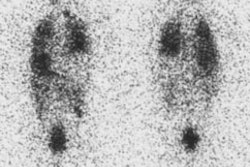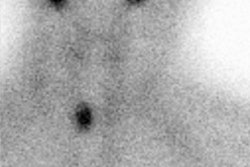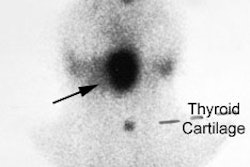J Nucl Med 1995 Jan;36(1):21-7
Assessment of female fertility and carcinogenesis after iodine-131 therapy
for differentiated thyroid carcinoma.
Dottorini ME, Lomuscio G, Mazzucchelli L, Vignati A, Colombo L.
The aim of this study was to evaluate female fertility, carcinogenic, and
genetic effects after treatment with 131I of differentiated thyroid carcinoma.
METHODS: A total of 814 females of child-bearing age were studied. The fertility
of 627 females who received 131I therapy was compared to 187 untreated females.
Birth histories of the children born from these women were registered. The
carcinogenic effect was evaluated by comparing the incidence of tumors in 730
patients treated with 131I with an internal control group, as well as with local
population incidence. RESULTS: There was no significant difference in the
fertility rate, birth weight and prematurity between the two groups. Only one
case of a ventricular septal defect was observed in a child born to a women
treated with 131I. The overall standardized incidence ratio (SIR) of second
tumors was 1.19 (95% CI: 0.76-1.77) in patients treated with 131I. An elevated
SIR was registered for salivary gland tumors and melanoma. No case of leukemia
was registered. CONCLUSION: The risk of long-term effects of 131I treatment of
differentiated thyroid carcinoma is quite low. Iodine-131 may be safely used in
treating cases with a high risk of recurrence.




